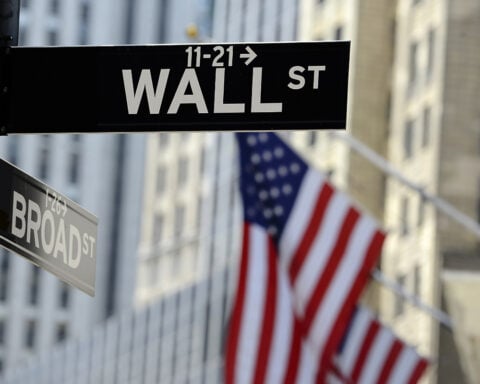U.S. stocks witnessed modest swings, marking a potentially subdued period following their most decisive week since March.
In the morning trading, the S&P 500 nudged upward by 0.1%. Meanwhile, the Dow Jones Industrial Average experienced a dip of 120 points or 0.3%, standing at 33,652 as of 11:15 a.m. Eastern time. Conversely, the Nasdaq Composite saw an increase of 0.4%.
The overall tepid movements of the indices came in response to an economic report showing a slower than anticipated growth in U.S. service industries such as accommodation and construction in May, marking the fifth consecutive month of expansion. This report adds to the mixed data indicating a slowing U.S. economy, burdened by increasing interest rates, but still needs to succumb to recession forecasts.
Even though more stocks fell in the S&P 500 than rose, a 1.7% surge in market giant Apple stabilized Wall Street somewhat. The tech titan’s increase comes ahead of an anticipated event where a long-rumoured headset is expected to be unveiled.
The oil sector saw some activity, with U.S. crude oil climbing 1.2% to $72.62 per barrel after Saudi Arabia announced production cuts to push prices up. Internationally recognized Brent crude increased by 0.6% to $76.60 per barrel. Both varieties have dropped significantly from nearly $120 per barrel a year ago, spurred by concerns about a struggling global economy consuming less fuel.
Wall Street appears relatively undisturbed without major earnings reports and important economic data this week. The market ponders two likely scenarios: whether the economy will plunge into a recession or inflation will recede enough for the Federal Reserve to slash interest rates.
Anticipation is high for the coming week when the government will release critical monthly updates on consumer and wholesale inflation levels, and the Fed will hold its next meeting on interest rate policies. Market players are mainly wagering that interest rates will remain unchanged, marking the first occurrence in over a year.
However, Wall Street speculates that the Fed could resume hiking in July. A temporary halt could allow the Fed to evaluate its aggressive rate increases over the past year.
High interest rates curb inflation by slowing the overall economy and reducing the prices of stocks, bonds, and other investments. With interest rates at their peak since 2007, several notable U.S. bank failures and a contracting manufacturing sector have rattled the market since March.
However, a resilient job market has enabled U.S. households to maintain spending, keeping the economy from recession. Last week, data indicated that U.S. employers boosted their hiring in May unexpectedly while wage increases moderated, easing some inflationary pressures.
Despite economic uncertainties, Wall Street hovers on the brink of a so-called “bull market” following weeks of positive gains.
The S&P 500 is currently just shy of 4,290. Should it end the day above 4,292.44, it would signify a rise of over 20% since mid-October, marking a transition from a “bear market” – characterized by a drop of over 20% over nine months – to a robust bull market.
In the bond market, the yield on the 10-year Treasury dipped to 3.67% from 3.70% late Friday.
The yield on the 2-year Treasury, which is more sensitive to Fed expectations, fell to 4.47% from 4.51%, having been higher earlier in the day before the weaker-than-forecast report on U.S. services industries.
In the global context, stock markets were mostly down in Europe. Japan’s Nikkei 225 leaped by 2.2%, with other Asian markets witnessing more restrained gains.
During these fluctuations, investors remain cautiously optimistic, balancing signs of a slowing economy against indications of continued growth in specific sectors. As Wall Street hovers on the brink of a bull market, the coming weeks will prove crucial in determining the future direction of the U.S. economy.







